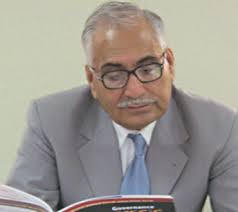This Balochi short story by prolific fiction writer, Munir Badini, has been translated into English by Fazal Baloch.
One day, I saw bulldozers of the Municipal Corporation demolishing the encroachments across the slum area. I didn’t care.
The next day, I found a debris stretching up to the main road. I kept walking.
On the third day, I saw a flock of men and women along with their children around the rubble in the numbing cold of Quetta. Someone was trying to retrieve their belongings buried under the debris while the others were piling up the bricks aside. Women were cooking food out in the open while children were playing around the remains of their homes. Life is always in tattered cloths! I looked the other way and kept walking.

On the fourth day, I noticed the homeless people building their homes again. Perhaps, the authorities of the Municipal Corporation had realized that these poor people had already suffered a lot so they allowed them to rebuild their homes a few steps away from the road, provided they would never resort to encroachment. The construction work was taken in hand immediately after receiving a go-ahead from the authorities. The sun was setting and they were busy rebuilding their homes in the chilling cold. I saw their young daughters pulling their head scarfs to hide their pale faces, but I kept walking.
On the fifth day, homes had been rebuilt but the whole area was strewn with stones, bricks and other construction wastes. Even in this state of utter disorder, life was vigorously brimming with hope.
On the sixth day, I spotted a twelve year old boy around those encroachments. With a shovel in his hand, he was putting aside more bricks and stones than he could. Since his back was pointing towards me, I couldn’t see his face. Suddenly, I felt as if he was my twelve years old son, Babol.
Babol too wore the same uniform. The same grey paints, the same blue jersey, the same white shirt and the same big head. He hadn’t changed his uniform on returning from school. Where could he? Thus he was toiling with his father. From head to heel, he looked like Babol. Exactly like Babol.
“Babul”. For a moment I wanted to call him out. But someone from inside stopped me. I turned my gaze and walked away.
Who was that boy? What was his father’s name? Which tribe did he belong to? Where was his birthplace? Where did he want to go? What was he thinking about?
I didn’t have answer to any of these questions. But it was obvious from his school uniform that he could be a classmate of my son.
Fazal Baloch teaches Urdu at Atta Shad Degree College, Turbat. He is the first regular translator of Balochi literature into English.


